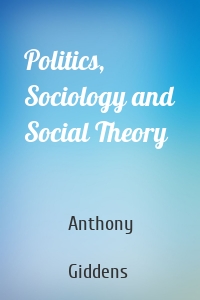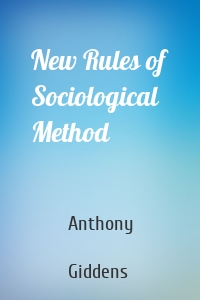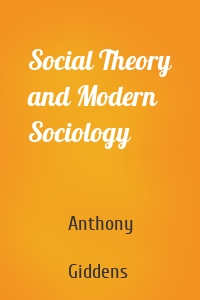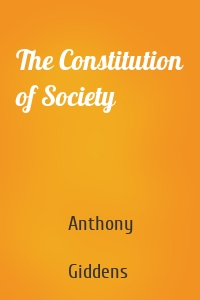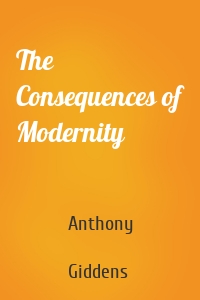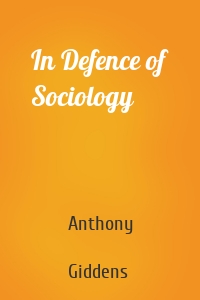Anthony Giddens
8 кн.
Politics, Sociology and Social Theo...
Built upon a series of critical encounters with major figures in classical and present-day social and political thought, this volume offers not only a challenging critique of major traditions of social and political analysis, but unique insights into the ideas which Giddens has developed over the past two decades.
| Автор | Anthony Giddens |
New Rules of Sociological Method
This is a new and revised edition of a book which has already established itself as a basic text in social theory. The first section of the work provides a concise critical analysis of some leading schools of thought in social philosophy, giving particular attention to phenomenology, ethnomethodology and Wittgensteinian thought. Giddens concentrates primarily upon the implications of these various perspectives for an account of human action and its intelligibility. An `action approach' on its...
| Автор | Anthony Giddens |
Social Theory and Modern Sociology
In this book Anthony Giddens addresses a range of issues concerning current developments in social theory, relating them to the prospects for sociology in the closing decades of the twentieth century. Composed of closely integrated papers, all written over the past few years, the book includes seven essays not previously published, plus two have not appeared in English before. In assessing the likely future evolution of sociology in particular, and the social sciences in general, the author both...
| Автор | Anthony Giddens |
Modernity and Self-Identity
This major study develops a new account of modernity and its relation to the self. Building upon the ideas set out in The Consequences of Modernity, Giddens argues that 'high' or 'late' modernity is a post traditional order characterised by a developed institutional reflexivity. In the current period, the globalising tendencies of modern institutions are accompanied by a transformation of day-to-day social life having profound implications for personal activities. The self becomes a 'reflexive...
| Автор | Anthony Giddens |
The Constitution of Society
Anthony Giddens has been in the forefront of developments in social theory for the past decade. In The Constitution of Society he outlines the distinctive position he has evolved during that period and offers a full statement of a major new perspective in social thought, a synthesis and elaboration of ideas touched on in previous works but described here for the first time in an integrated and comprehensive form. A particular feature is Giddens's concern to connect abstract problems of theory to...
| Автор | Anthony Giddens |
The Consequences of Modernity
In this major theoretical statement, the author offers a new and provocative interpretation of the institutional transformations associated with modernity. We do not as yet, he argues, live in a post-modern world. Rather the distinctive characteristics of our major social institutions in the closing period of the twentieth century express the emergence of a period of 'high modernity,' in which prior trends are radicalised rather than undermined. A post-modern social universe may eventually come...
| Автор | Anthony Giddens |
In Defence of Sociology
Is there a future for sociology? To many, sociology seems to have lost its way. Born of the ideas of Auguste Comte in the nineteenth century, sociology established itself as 'the science of modernity', linked to a progressive view of history. Yet today the idea of progress has more or less collapsed; with its demise, some say, sociological thought has moved to the margins of contemporary intellectual culture. In this book the author challenges such an interpretation, showing that sociology...
| Автор | Anthony Giddens |



